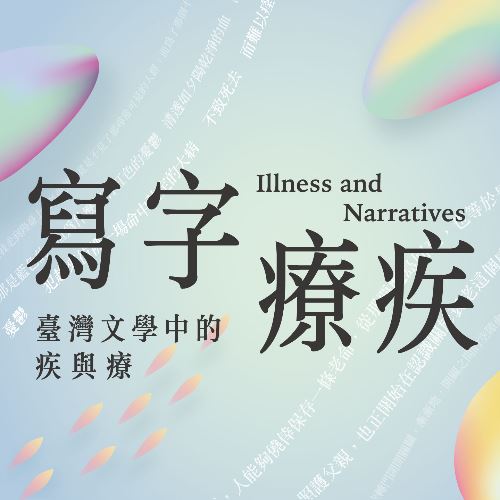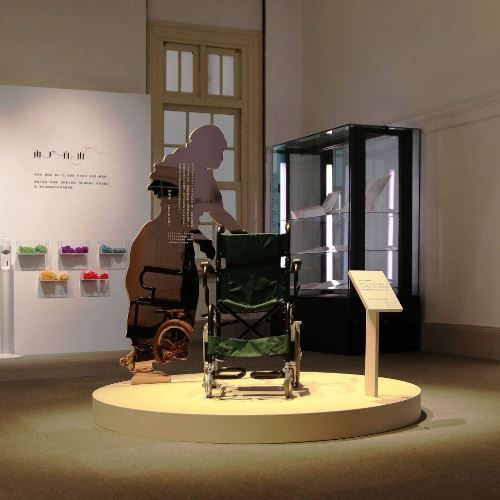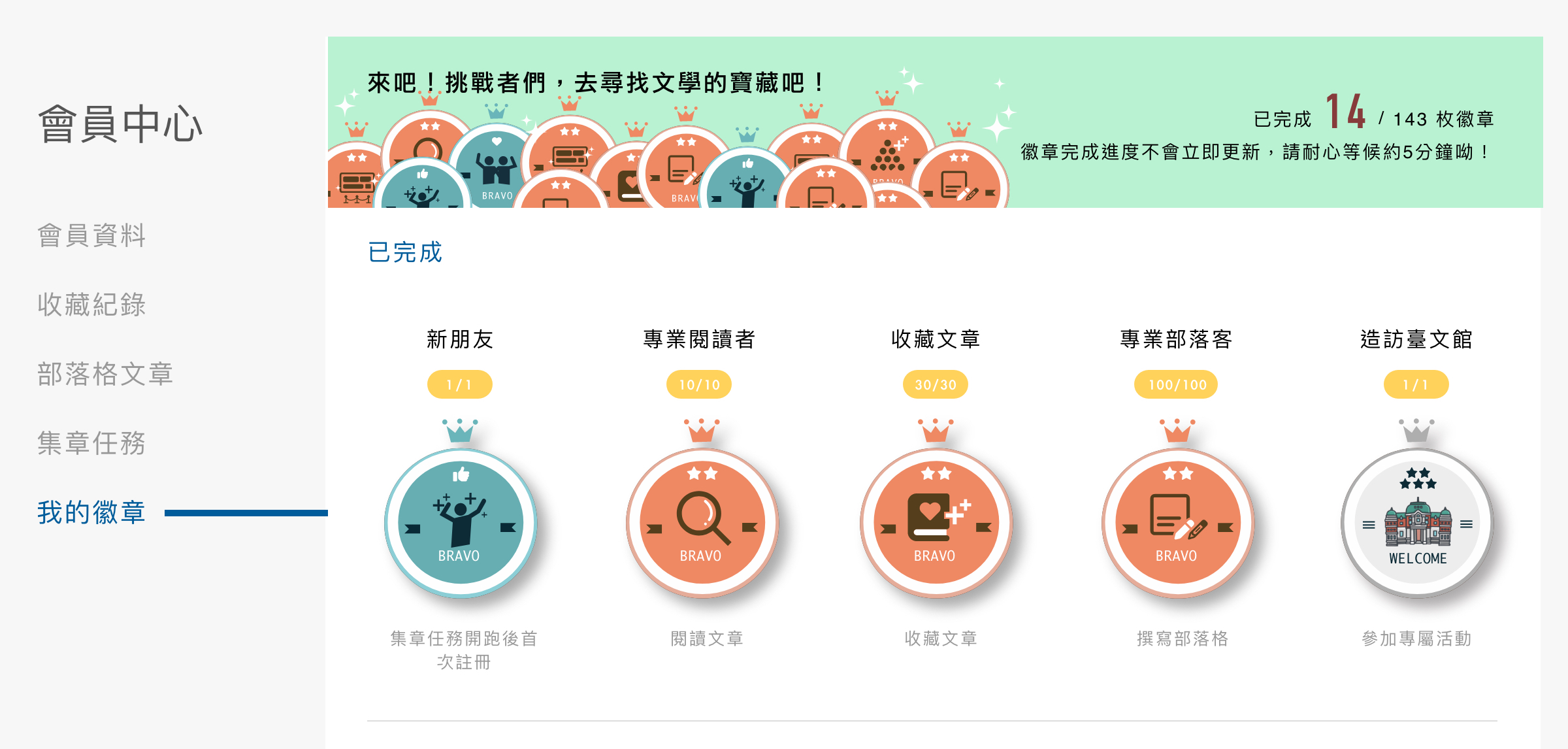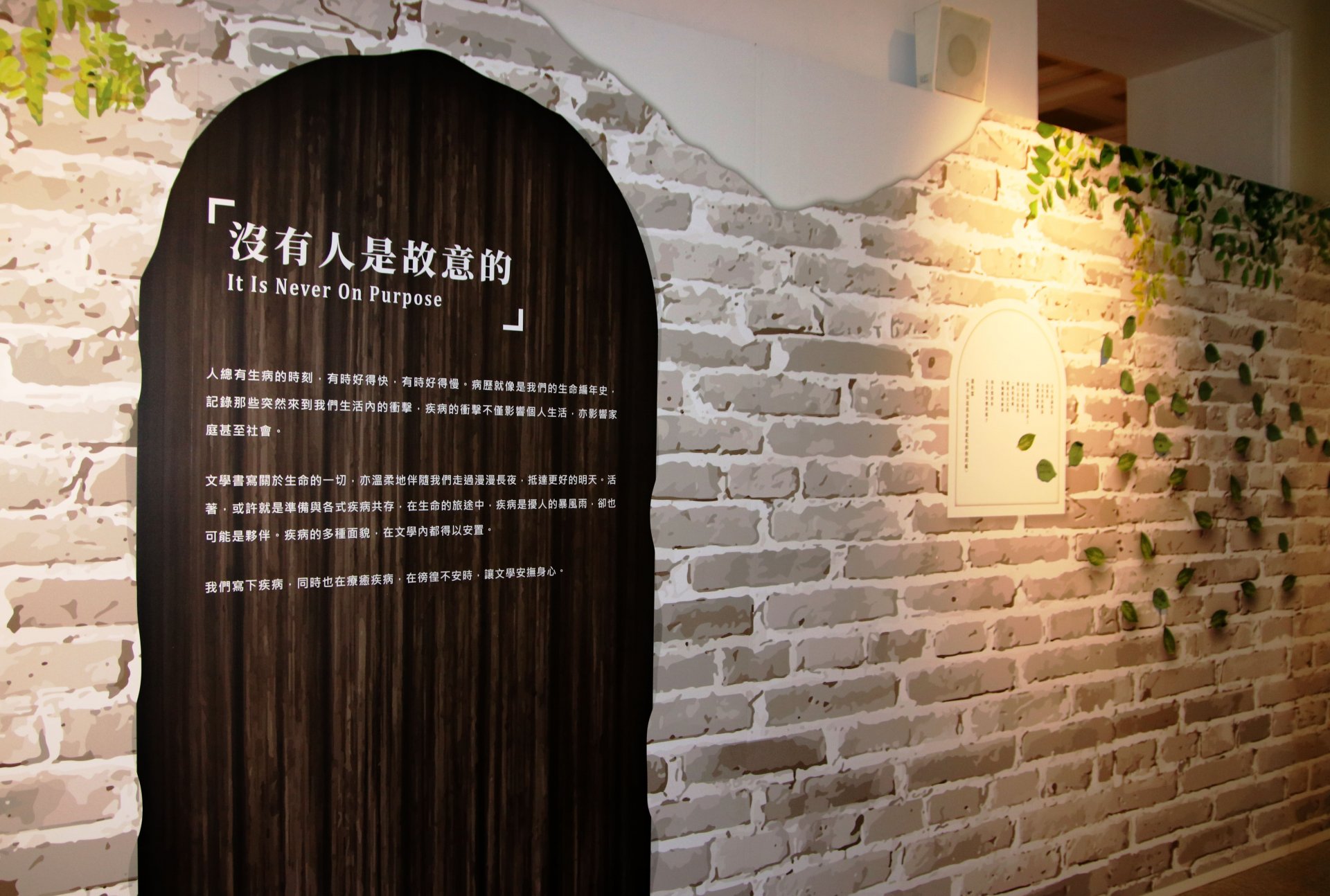
People get sick; sometimes they get better soon, and at other times, they may be sick for a long period of time. Medical history is like the chronicle of a person's life, keeping track of abrupt impacts on a patient. Sickness influences not only a person's life, but also the person's family and society.
Literature depicts everything in life and gently accompanies us through each long night so that we can reach a better tomorrow. Perhaps being alive means living with all sorts of diseases. In the journey of life, sickness is like a disturbing storm, but it can also be seen as a companion.
The many facets of diseases have their respective representations in literature. We write about diseases to seek healing; when we are in doubt, literature can soothe us physically and emotionally.
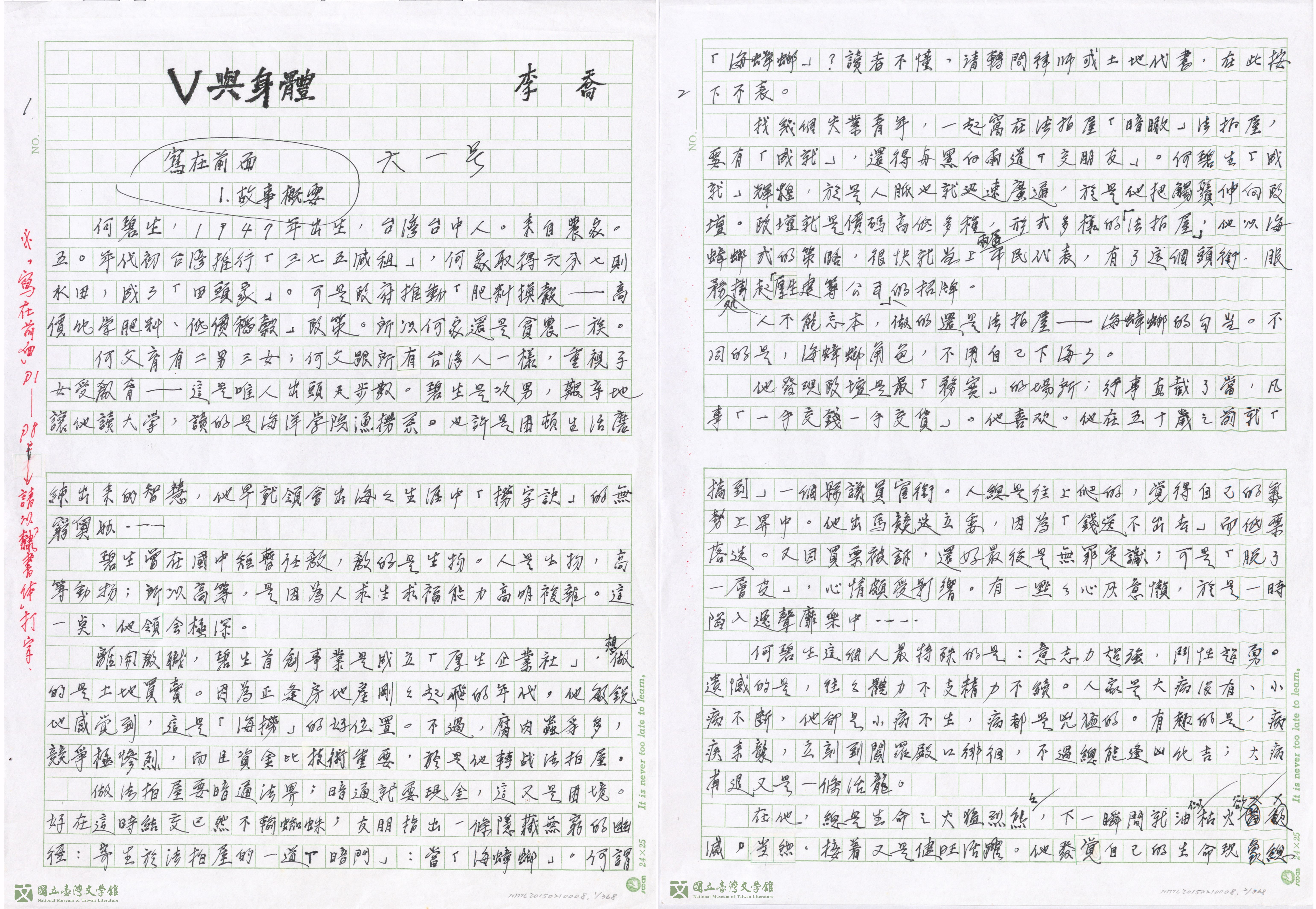
✺ V & BODY
V & BODY, written by Li Chiao (1924-), narrates about the protagonist He Bishen (V; first person "I") and his story with the organs in his body. Three fonts, "Ming Script," "Regular Script," "Clerical Script" respectively represent V, his organs, and the limited omniscient point of view. The conversations among the three demonstrate Taiwan's contemporary history.(Donated by Li Chiao / Kept in National Museum of Taiwan Literature)
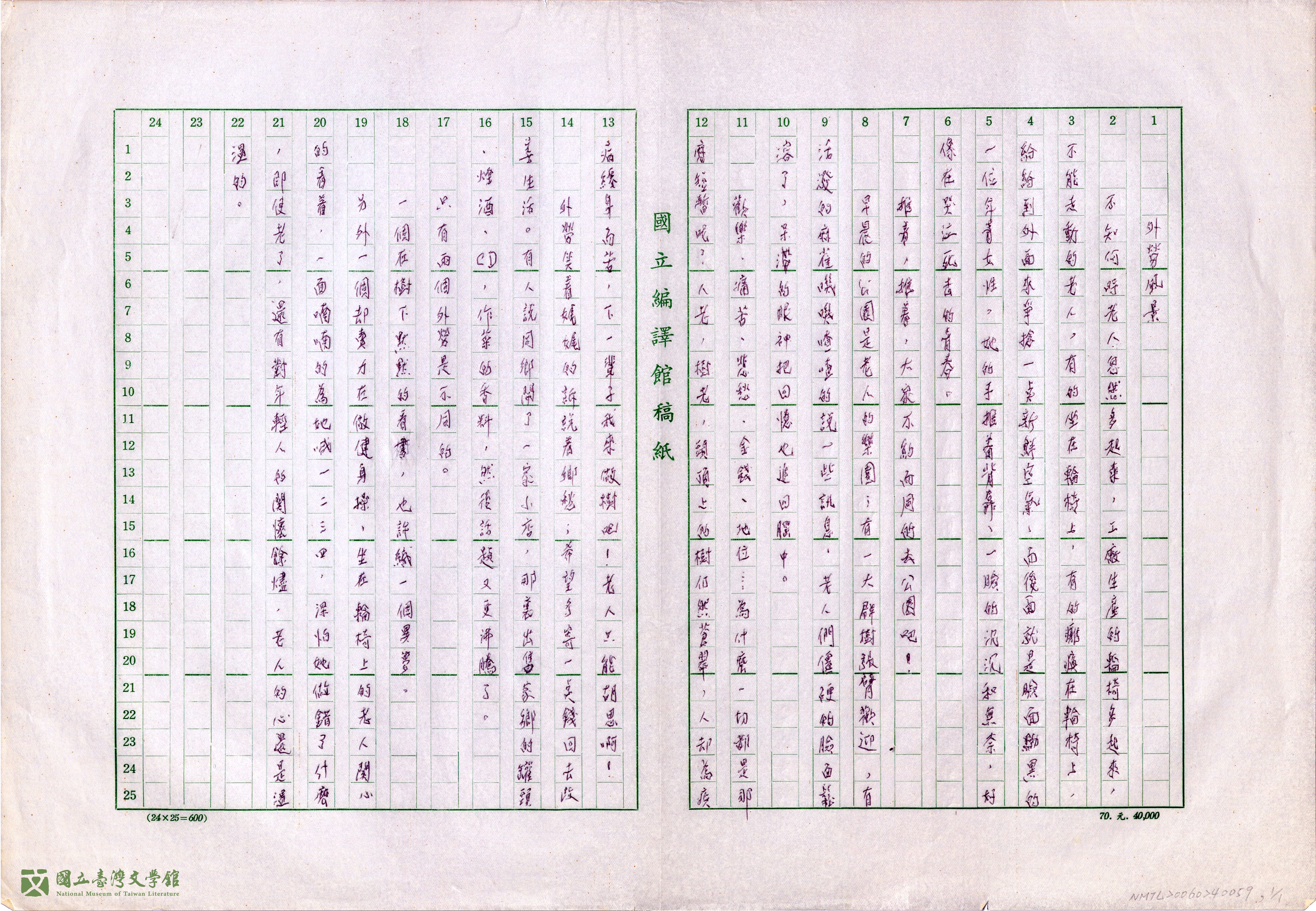
✺ "Foreign Workers"
This work by Shao Chien (1934-2016) depicts a common scene in the park from the perspective of a foreign caregiver, revealing that the caregivers of many old people are actually not their children but these foreign workers that talk to each other about their homesickness.(Donated by Shao Chien/ Kept in National Museum of Taiwan Literature)
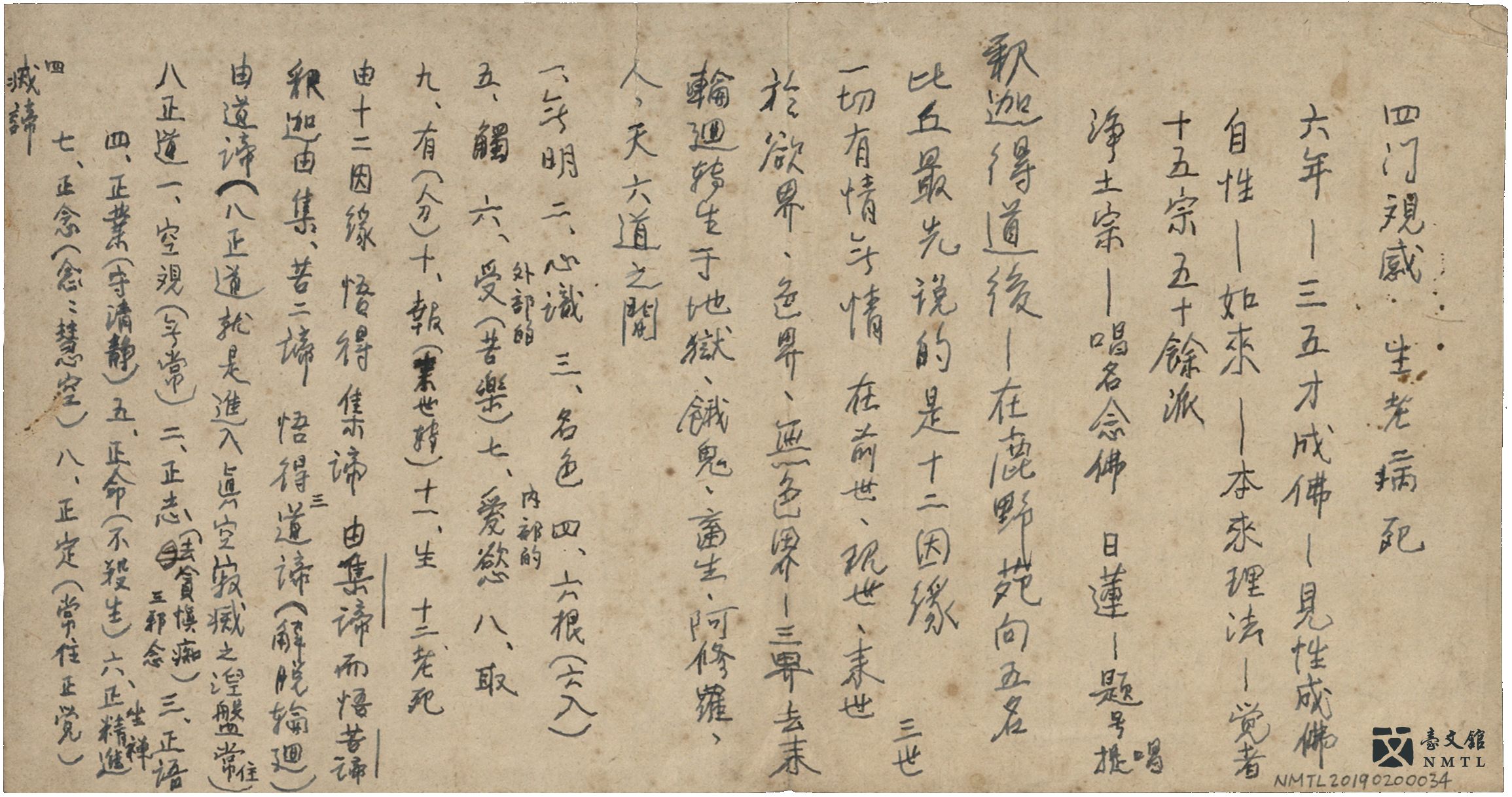
✺"Birth, Old Age, Sickness, and Death"
Tsai Pei-huo (1889-1983) writes about the lifecycle of a person from a religious point of view and his comprehension of Buddhism. The text introduces the 12 Links of Dependent Origination, which includes birth, old age, sickness, and death. It explains that those who wish to seek enlightenment must understand the 12 Links of Dependent Origination before understanding the Four Noble Truths, in order to be free from reincarnation.(Donated by Huang Zhen-nan / Kept in National Museum of Taiwan Literature)


